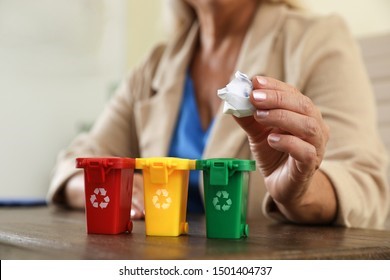
In this blog, we will walk through two successful case studies of EPR being implemented in OECD developed countries.
FRANCE
Even though it has been voted in since 1975 and has been formalized by both the French law and an EU directive, EPR was only applied as a law in France to household packaging waste in 1992. Since then, EPR channels have only increased.
In that country, EPR is defined as the requirement from producers, importers and distributors to contribute to the disposal of waste from their products. The wording in the current Environmental Code (Article L541-10) has barely changed since the original 1975 directive.
Over the years, the efficiency of EPR channels has also progressed. In the last two decades, the collection rate of batteries has reached 80% as opposed to not being collected before at all [1].
As of 2016, there are 14 mandatory schemes that have been operational in France that channel over 600 million euros yearly towards packaging waste management.
Below is the classification of these schemes:
- European EPR implemented in France
1.ELV (end-of-life vehicl
WEEE (electrical and electronic equipment)
- Batteries and Accumulators
- French EPR subject to EU regulations
- Household Packaging
- Fluorinated Refrigerant Fluids
- Pharmaceuticals
- (Lubricants)
- French EPR
- Tyres
- Graphic Papers
- Textiles
- Infectious Healthcare Waste
- Furniture
- Dispersed Hazardous Waste
- Gas Canisters (forthcoming as of 2016)
Collective bodies called PROs (Producers Responsibility Organization) can be delegated the task of managing the waste by paying an eco-contribution to. PROs are private companies that have to follow terms of reference imposed by the State. Producers, operators and PROs work in collaboration with the municipal system to find the most efficient ways of collecting, treating and disposing waste.
Statistics show the progress that the French EPR scheme have made over the years (Figures as compounded in 2016):
- In the past 28 years, the recycling rate* for household packaging waste has risen from 18% to 70%;
- In the past 13 years, the collection rate* for household WEEE has risen from almost nothing to 53%, and 74% of waste collected is recycled into new materials or reused;
- In the past 20 years, the collection rate for batteries has risen from almost nothing to 49%, and 80% of waste collected is recycled into new materials.
In the next blog, we will cover the case study of Germany and its EPR schemes.
References:
[1] Jacques Vernier, “Extended producer responsibility (EPR) in France ”, Field Actions Science Reports [Online], Special Issue 23 | 2021, Online since 23 November 2021, connection on 09 December 2021. URL: http://journals.openedition.org/factsreports/6557
[2] OECD (2016), “20 years of EPR in France: Achievements, lessons learned and challenges ahead”, in Extended Producers Responsibility: Updated Guidance for Efficient Waste Management, OECD Publishing, Paris.






